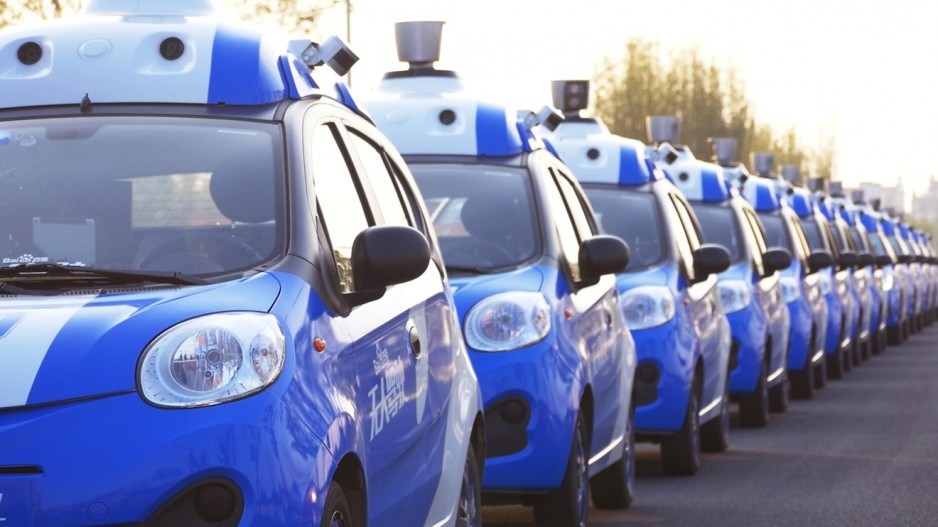Ideally, driverless cars will be observant machines, say tech leaders.
Does the human driver in front of it like to tap on the brakes too frequently? Does the driver often veer into the next lane without warning? The driverless car will be taking notes.
Why it matters: In the coming decade – or perhaps sooner – it’s the kind of information autonomous vehicles (AVs) hitting the road would like to know.
“You want to make it [AVs] safe and you want to make it better than what humans can do, so a better way to do that and be able to use real live data with real vehicles that are out there today [is] Step 1,” said Mojio CEO Kenny Hawk, whose Vancouver-based company has worked with hardware partners to develop a device that plugs into a car’s on-board diagnostic port and sends encrypted data to Mojio over a high-speed wireless network.
Mojio has partnered with telecom carriers across the globe, including T-Mobile in the U.S., Deutsche Telekom in Europe and Telus Corp. (TSX: T), Rogers (TSX: RCI.B) and Bell (TSX: BCE) in Canada.
Appearing at the B.C. Tech Summit May 15 to discuss the impending rise of driverless cars, Hawk posited that if one million AVs were to show up on the roads tomorrow, the data in Mojio’s cloud would be vital for safety on those roads.
“It’s coming; it’s clear it’s coming – you just have to make it safe,” he said.
A pedestrian death involving one of Uber Technologies Inc.’s self-driving cars in March raised new concerns about the safety of autonomous vehicles.
Panel moderator Paul Godsmark, chief technology officer of Canadian Automated Vehicles Centre of Excellence, and panellist Daryn Nakhuda, CEO of Seattle-based Mighty AI, each remarked separately during the discussion about the number of human-caused vehicle accidents.
Both said the rise of driverless cars will result in safer roads once the technology is perfected, and that AVs’ use of data, sensors and communication will make them better drivers than humans.
Meanwhile, Lyft’s Tim Burr told the audience he wanted to dismiss the notion that members of the general public will start buying their own driverless vehicles en masse.
“That’s not how we see it at Lyft,” said the director of public policy at the San Francisco-based ride-hailing service.
Instead, he said ride-hailing companies like Lyft would own fleets of vehicles and maintain a combination of AVs and human-driven vehicles.
“The real main shift when we’re going to see proliferation of the technology is going to be when it’s cheaper, just as cost-effective, just as reliable,” Burr said. “But in the short term, consumer adoption is going to be really important.”
He envisions people becoming used to sharing vehicles with strangers, reducing ride costs to the point where most people are less motivated to invest in owning a vehicle.
But Nakhuda said people should also be prepared for job losses resulting from this proliferation of driverless vehicles. He said it would fall to governments and industry to retrain workers affected by those losses.




